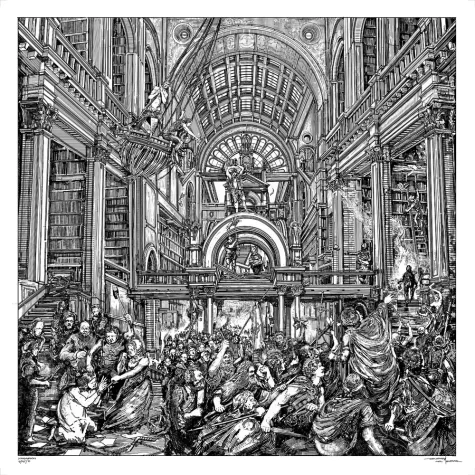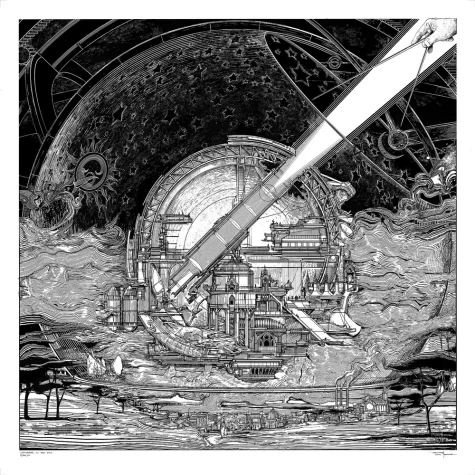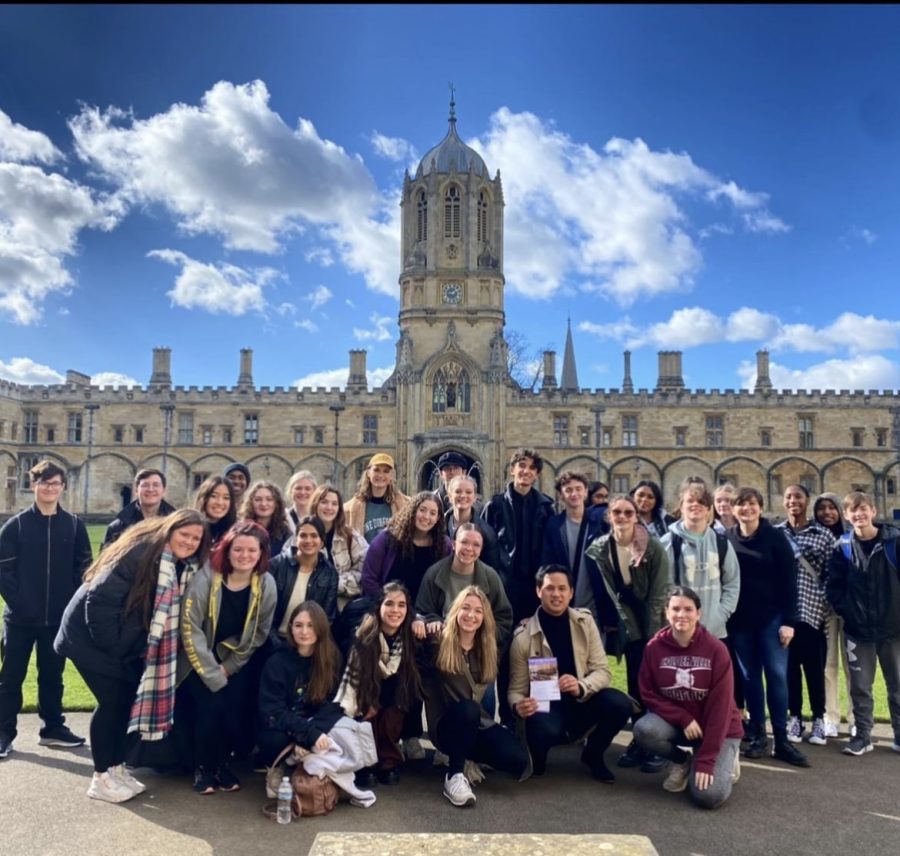Ghost’s fifth studio album is their best one yet.
April 14, 2023
With each album, Ghost explores a different genre of rock and metal music, keeping their sound unique. Their latest album, Impera, was made for fans of glam metal, and within each song, you’ll hear echoes of your favorite 70s and 80s bands.
“Imperium,” is a smooth instrumental that begins the album on a haunting melody. It slowly introduces a more confident electric guitar and drum beat that fades out into a rush of silence.
Opposed to the opening track, “Kaisarion” is upbeat from the first note. The title is an alternative spelling of Julius Ceaser’s son, Caesarion. Lead singer Tobias Forge paints the story of an insurmountable empire while the guitar and bass take a backseat to the drums and choir. The song describes this kingdom as “far away from the stench of the heavens” and a woman – Hypatia – who is punished for “her satanic whiles,” upholding the band’s theatrical and religious themes. It’s the kind of grandiose that makes you max out your car volume and drive with the windows down.

The third track is the album’s biggest throwback to glam metal as it opens with a trilling keyboard that automatically conjures “Runaway” by Bon Jovi. “Spillways” is about man’s devotion to religion and his need to be punished for wrongdoings taking shape in worship. Like “Kaisarion,” it has an upbeat sound that combats morose lyrics.
The album takes a more sinister tone with “Call Me Little Sunshine.” The upbeat rock of the past two songs slows down. Forge makes excellent uses of implying commas to change the meaning of the title. While he first instructs the listener to call him Little Sunshine, it’s restated with a pause that suggests he’s now asking the listener “Little Sunshine” to call on him. Outside of the song’s darker nature, the lyrics are gentle as he addresses the listener with promises of protection.
“Hunter’s Moon” was written for the movie Halloween Kills, and as such, illustrates a killer hunting down an old friend. He sings lovingly of this person and how he’s “dying” to see them again. It’s nightmarish but gentle, similar to the previous song. You can feel the violent love as though it were your own, and as the chorus hits, you’re on the hunt right beside the singer.
“Watcher in the Sky” is made compete in concert. The guitars and bass take center stage with a tempo and harshness aligned to marching armies and gunshots. Forge’s vocals are as grand as a preacher calling upon the church. In live performances, the “searchlights looking for the watcher in the sky” are turned onto the venue ceiling, pulling your eyes up to join in.

With their second instrumental, “Dominion” brings the listener back to the album’s initially haunting tone and stands as the introduction to Side B. Unlike the other songs, this track is composed only of orchestral instruments.
“Twenties” was the first song I could complain about. It took more than a few listens for it to grow on me and is much choppier than the other tracks. Like “Dominion,” it utilizes orchestral instruments and an echo of the same marching beat in “Watcher in the Sky.” Like track two, it’s also a story of takeover: a ruler who refuses to let go of his empire and his plans to make it grander than before. And as he makes grand promises, you are one of his followers. Unfortunately, it’s out of place in the album, and its intense follow-up to a soft instrumental doesn’t fit together the same way “Imperium” and “Kaisarion” do.
With “Darkness at the Heart of My Love,” Forge finds middle ground between intensity and tenderness. The verses are hardly more than a whisper while the chorus is desperate and shouting. He begs you to offer up your sins, to repent, and to see how his love for you is poisoned. It’s a push and pull between a promise of tranquility and the knowledge that beneath this is wretched truth.
Track ten’s title – “Griftwood” – is one of the most interesting, next to Kaisarion. Considering it isn’t an actual word, there’s no exact meaning, though a “grift” is a petty or small-scale swindle. Throughout the song, Forge preaches to the audience, promising “the sire,” “a view from the spire,” “a seat by the pyre,” and to “never ever suffer again.” It’s reminiscent of a church sermon decreeing reasons to follow God. As such, it carries the same grandiosity of “Kaisarion,” though it promises paradise instead of power.
“Bite of Passage” is the third and final instrumental, as well as the album’s shortest song at 32 seconds. It signals a barrier between the first ten songs and the album’s final track.
The last track, “Respite on the Spitalfields” is a change of pace that details the fear left behind after Jack the Ripper disappeared. A series of brutal murders ended with no one caught, and as such, the people of Spitalfields were left wondering when the next hammer would drop. It’s the horror of going back to normality after living in constant fear. While the song doesn’t fit the general theme of the album, it closes with the same tune “Imperium” opened on and promises “we’ll go softly into the night.”
While the album isn’t perfect, few are, and Ghost’s Impera is their best one so far. It’s easy to get swallowed up in the story behind each verse. Each song is carefully crafted to hold a story you can get temporarily lost in. Even listening on the radio, you can feel the live performance surround you; it’s hard to keep the volume down, and that’s what makes good music.


































